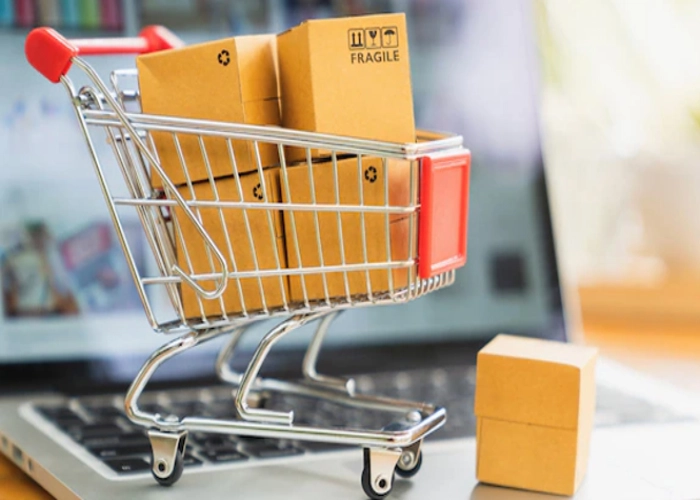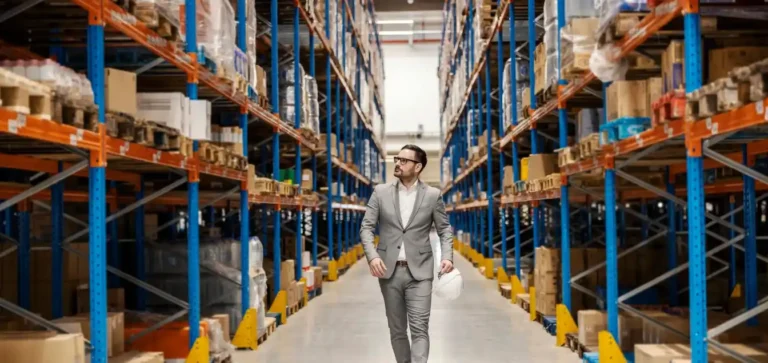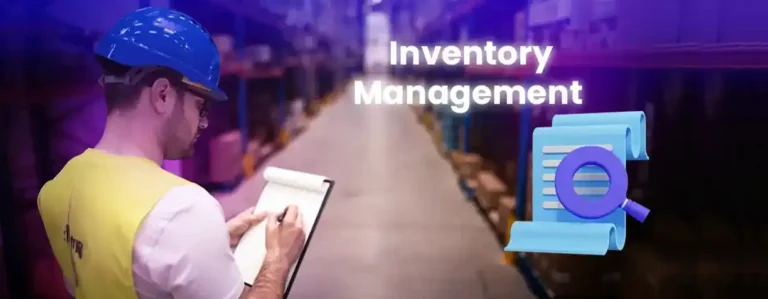In its simplest form, e-commerce order fulfillment is defined as an end-to-end solution process that starts from the point of ordering or completion of the purchase to the point of manufacturer’s package and delivery. All of this can include:
- Receiving
- Owning
- Packaging
- Delivering products to the end-user customers.
This process can be generated through the retailer itself, or outsourced to third parties.
Table of Contents
What is E-Commerce Order Fulfillment?
Order fulfillment is the process of stocking inventory, picking and packing products, and shipping online orders to customers. This process can be completed in-house by an e-commerce company or outsourced to a third-party logistics provider (3PL).
E-commerce order fulfillment applies to both business-to-business (B2B) orders, where large quantities of products are shipped to large retailers and business-to-consumer (B2C) orders that are shipped directly to the home, from a single buyer.
For B2C orders, the end consumer can place the order on the merchant’s website or through an online marketplace. Once the customer completes their purchase, the fulfillment process begins.
The E-Commerce Order Fulfillment process
If you’re new to the world of E-Commerce Order Fulfillment, you may not have given much thought to how an online order ends up at your doorstep. However, there are many moving parts, from routing and inventory management to choosing the correct packaging for the lowest practical dimensional weight, that make up the entire fulfillment process.
There are nuances to each step of the fulfillment workflow, including receiving inventory, stocking products, picking and packing items, and shipping orders.
- Receive.
Before you can fulfill orders from your online sales channels, you need inventory. If you choose to fulfill orders internally, your inventory must be available. If you outsource fulfillment, inventory must be shipped to the vendor who will perform fulfillment on your behalf.
- Inventory storage
Inventory storage, also known as warehousing, is the organization and storage of your products. Each unique product or SKU must have a separate dedicated storage location. For larger operations, this will be on a rack, in a container, or on a pallet. Proper inventory storage will keep your products safe and secure and give you visibility into what is available to ship to your customers.
- Order processing
Once an order has been submitted, it will be processed. These steps involve selecting or retrieving items from where they are stored and packing or preparing the order for shipment. A delivery note is often used, which lists the quantities and storage locations for each product ordered. This may also include instructions on what packaging materials to use or any custom packaging and inserts to create the intended unpacking experience for the end customer. Finally, a shipping label must be added to the package.
- Shipping
Once the order has been processed and is ready to ship, the merchant must ship it. This may involve going to the local post office or UPS store or having a carrier pick up orders at the fulfillment location. Once the order is shipped, you should receive tracking information that can be shared with customers to keep them up to date with your deliveries.
- Processing of returns
If a customer returns an order, you must be prepared to process it. It may be sent directly to you or to the fulfillment provider where it will be evaluated. Depending on the quality of the item, the reason for the return, and your return policy, the product may be restocked as available inventory or scrapped due to malfunction.
Related article: Know Fulfillment Services: How to Use it?
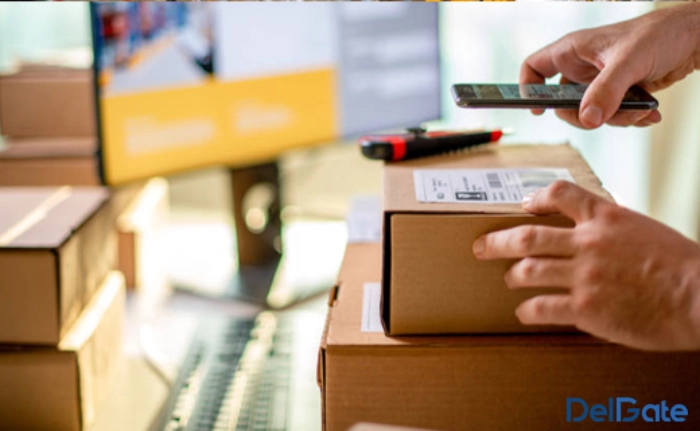
How the supply chain has evolved
These days, online consumers are much more demanding than ever before, and both retailers and the logistics industry that cater to those demands are struggling to adjust to the new landscape of online consumerism and modern supply chain management trends in e-commerce.
In the age of e-commerce, to paraphrase a classic television commercial, the modern supply chain is “not your father’s industry.”
The era when warehouses and distribution centers were large, understated structures designed to meet the demand created by retail sales simply, has evolved into a complex technological infrastructure serving the rapidly growing e-commerce space. The rapid growth of electronic commerce has drastically changed the global market.
Related article: Fulfillment Costs: Know Everything About 3PL Warehousing Costs
A modern way of warehousing and E-Commerce Order Fulfillment
In today’s markets, e-commerce has become a vital and irreplaceable part of how individual consumers and businesses order goods.
The sheer amount of volume and complexity demands a greater amount of automation, computerized control, and speed that older systems simply cannot handle.
Traditional manual fulfillment modes were too tedious, error-filled, and time-consuming. However computerized systems can handle international order fulfillment 24/7 while providing suppliers and customers with real-time updates and progress information.
Two main benefits come from modern warehousing and fulfillment:
- Automation warehousing and fulfillment
Because providers need to be able to meet growing demand in shorter time frames, they are increasingly turning to automation. Programs can bridge the gap between consumers and suppliers to immediately place ordered items on the shipping list, send them to the correct distribution center, and more. Automated inventory management systems can notify manufacturers when stock needs to be replenished and can even predict future bursts of demand to prevent shortages.
Related article: Fulfilling Online Orders And Meeting Consumer Demand In 3PL Services
- Accessibility
Smart storage technologies don’t just open up e-commerce to shoppers in widespread locations. Smaller companies can compete with larger companies because they have access to a national (or international) infrastructure of distribution centers, shipping resources, and warehouses. Small businesses can lease storage at critical locations in the right sizes for their inventory, then modify their contracts from one term to another as their business grows.
Related article: Fulfilling Online Orders And Meeting Consumer Demand In 3PL Services
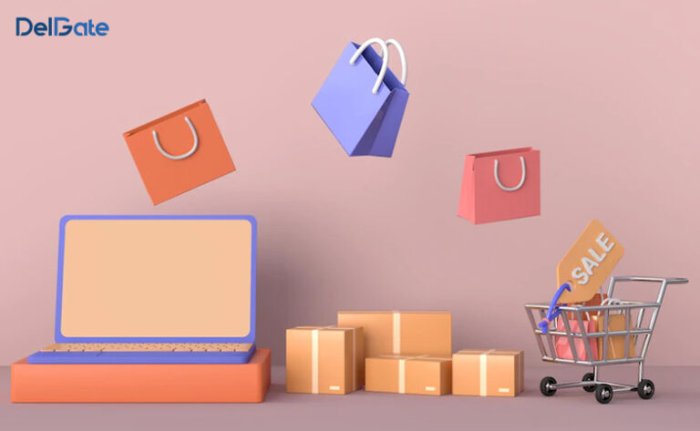
Conclusion
E-Commerce Order Fulfillment is every step a business takes to get a product to a customer. This includes receiving order notifications, managing payments, managing inventory, and processing returns.
While never a simple matter, fulfillment processes have been transformed in recent years with the growth of the e-commerce industry. In the past, businesses simply had to worry about keeping products on the shelves, but now they must also think about getting products to customers who never walk into a store.
How has customer expectations impacted E-Commerce Fulfillment strategies?
Rising customer expectations for fast shipping and order accuracy have driven the adoption of advanced fulfillment strategies, including same-day shipping, order tracking, and improved last-mile delivery solutions.
What is the significance of data analytics in E-Commerce Order Fulfillment?
Data analytics plays a crucial role in optimizing supply chain performance. It helps in demand forecasting, inventory management, and identifying areas for improvement in the fulfillment process.

